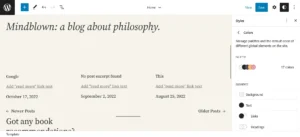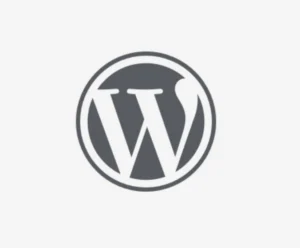WordPress is a great website builder, but like other similar platforms, it has some advantages and disadvantages. We’ve discussed the same in the following paragraphs:
Advantages
Money saver
Hiring someone to build a web portal will cost you a lot of money. A developer may charge anything between 100 to 500 dollars to build a website according to your requirements. Once your site is built, you may have to pay a yearly maintenance fee to the developer. You may also have to re-hire him if you want your portal to have new features or skin. WordPress is free and open-source software that anyone can use.
Despite being free, it is powerful. You can install themes and plugins and use the live customizer tool of WP to customize it. Top-rated and the most downloaded themes are updated often. If you’re using a free one, you will get updates as long as the developer is interested in updating their product. The same thing applies to plugins.
WP themes can be free or paid. Paid ones are not listed in the repository. There are marketplaces that sell themes, or you can buy a template from the developer’s official website. You can use any free template or plugin available in the repository on as many portals as you want without registering an account. The only thing WP requires to function is hosting. There are hundreds of website hosting services. Thus, finding a good hosting company is difficult. We’ve made this task easier by comparing the features and plans of various popular hosting companies.
Easy to use and versatile
WordPress is a novice-friendly website builder. Its latest versions come with a page builder tool called Gutenberg. A page created with this editor can have one or hundreds of blocks. A block can comprise a paragraph, button, image, etc. The only limitation of Gutenberg is that it doesn’t offer as many blocks as other page builders. A user can easily overcome this limitation by installing a Gutenberg blocks plugin.
WordPress has evolved from a CMS to a powerful website builder. Credit for this goes to page builders and the Gutenberg editor. Gutenberg is not as old as popular page builders such as Elementor, Divi Builder, Visual Composer, etc, but it is still a vital part of a WP site. Page builders allow users to design a custom page from scratch, and WP themes may have hundreds of options. You can thus create any type of website with WP.
A huge number of free themes
The WordPress repository features over two thousand themes. Many templates are not rated and have less than five thousand users. However, there are hundreds of them with a rating of 4.7+ and over fifty thousand users. WP core developers are working on a new module called Full Site Editor.
As the name suggests, FSE allows users to edit any part of a theme. When the FSE is rolled out fully, we expect a lot of templates to disappear from the WordPress repository. WP gives you access to more themes than any other similar framework and builder.
A huge number of plugins
Plugins are scripts you can add to your site. It can have a few lines of code or thousands of lines of code. You can add a new feature to the portal without writing code with a plugin. What if you don’t use it? WP portals are incomplete without a plugin. If you don’t install it, you will have to implement the feature on your web portal manually. For example, to add a form to your WordPress site, you must write the form’s HTML, CSS, and PHP code by yourself.
Excellent support
The WP community is very helpful. You’ll find several WP-related support/help forums on the internet. The official WP portal has a dedicated forum section where you can ask questions and get answers on anything related to the website builder.
This forum has thousands of threads. Thus, there are good chances that an issue you’re facing may have already been addressed in the forum. Popular websites such as Facebook and Reddit have many WordPress-related moderated forums. If you’re using a premium template, you’ll get access to a support forum, or you can get help directly from the developer or the theme development company’s support staff by creating a ticket.
Disadvantages
Can easily become bloated
Plugins can have a negative impact on your site’s performance. Your web portal will become bloated if you install plenty of them. Not many WP themes are modular. If you’re using a feature-rich WP product and you don’t use most of its features, your web portal will have many lines of useless code. WP plugins such as Autoptimize or WP Rocket can fix this issue instantly.
Updates
Major WordPress updates are not rolled out quite often, but the same doesn’t happen with themes. A developer or a plugin developer may release an update quite often. If the update is addressed to fix a security issue, users will be worried and have no option but to update the plugin/template. An update may cause a problem on a site. For example, in the WP support forum, you’ll find threads created by users whose sites crashed after updating a theme/plugin.
Developers may ditch their products
There’s no guarantee that a WordPress product you’re using on your portal will get updates in the future. It doesn’t matter whether the product is a paid or a free one. Also, developers can make surprising changes to the plugin/theme subscription plan. A good example of this is StudioPress. When WP Engine took over StudioPress, they made the paid Genesis Framework free and stopped rolling out updates for the Framework. After 2021, the Framework has not received a single update. We were using Genesis Framework before switching to Astra. Astra is one of the best Genesis Framework alternatives.
So, should you use WordPress? Yes, WP is a great tool for building sites. If you choose a theme/plugin wisely, you’ll never face an issue with the website builder, template, or plugin.




